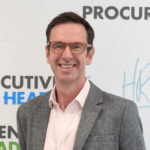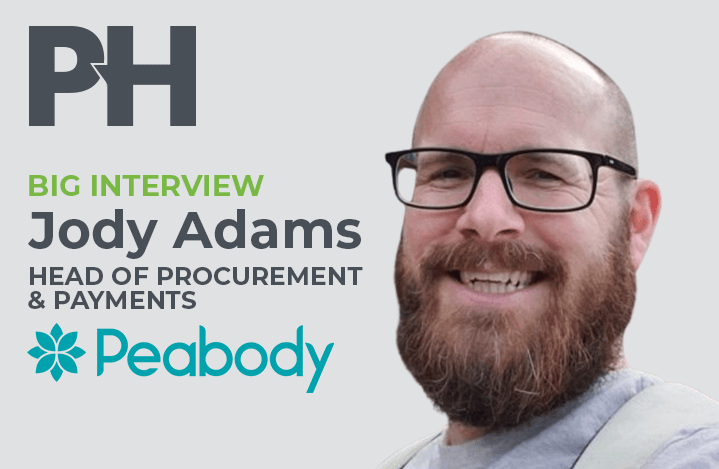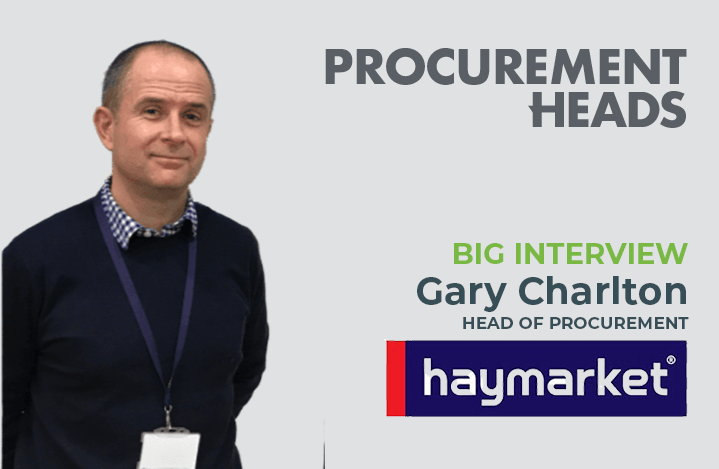In this edition of the Big Interview, Procurement Heads explore Amanda’s background, day-to-day life and essential skills that have led her into this exciting career, along with top tips and advice to those considering, or in the early stages of a Procurement role.
How did you get into Procurement?
When I was studying I’d never even heard of procurement. I did a business degree at university and majored in marketing. From there I moved into recruitment – and I was recruiting for procurement people! I interviewed hundreds of people and found myself thinking, “that sounds amazing, I would love to go and do that and I actually think I’d be really good at it”, and that’s basically how I got into it.
I then wrote to 250 companies asking them to create me a job since starter roles in procurement back then were virtually unheard of. Only one of those companies rose to the challenge, Aramark – and my career began there.
If it hadn’t been for my recruitment role, I’d never have found procurement. It’s a fantastic profession and it’s such a shame that it’s not out there being talked about more in our schools. At school, I was described as a ‘good all-rounder’ which at the time I interpreted negatively as not having any specific strengths. But what that actually meant, was that my ability to swap between skills easily is perfect for a procurement role.
What success are you most proud of in your career to date?
For me, it’s being a founding member of the Chartered Institute of Procurement and Supply Fellowship. Throughout my career, I’ve been very involved with CIPS.
Initially that was because I was frustrated that after achieving MCIPS there didn’t seem to be much on offer to members, which seemed such a big let down and I wanted to get involved and change that.
The Fellowship is a great opportunity to support our industry and peers as well as provide role models and aspirations to younger procurement professionals.
The Fellowship has become a very well-known network of over 700 CPOs. It also has a Fellows of the Future programme, all about identifying rising stars after they have passed their exams, then mentoring and inspiring them to help them up the career ladder, not only to CPO but hopefully beyond.
What do you both love and find challenging in your role?
I’ve come from large companies where change was often hard going. Coming here to RSA I’ve found myself in a company that is very agile and keen to transform.
All those buzz words other people in the industry talk about – I’m involved with and doing… Robotics, automation, data analytics, operational excellence, digitalisation; the list goes on and on.
The challenge is juggling multiple priorities but to still keeping my procurement agenda going as well. It’s important that we support the business in achieving its transformation goals, and that we drive savings and quality of service.
But it’s also important to improve how we carry out procurement and manage supplier risk.
Often it’s not the first priority for my business stakeholders – but I know it’s mine. If something goes wrong that will be the first thing we need to rely on.
What does your typical day at work look like for you?
First off, I have a two-hour commute into the office, and then I’m in meetings all day – stakeholders, suppliers, steering committees and team management.
There is so much to do, so much to get involved in. Everybody wants your input so you need that ability to swap between subjects, prepare for meetings very quickly and spot the opportunities and decisions that need to be made.
Delegation is quite a big part of my role – it’s all about giving other people the opportunity to develop. I’m here to make sure that we’re all coordinated and have the right strategy in place.
After that, it’s very much about handing it off to my team and making sure I’ve given the right people the direction they need. My leadership style is very much about mentoring, coaching and then stepping back, empowering them to come back to me when they need more direction or talk it through.

What trends have you observed within Procurement recently?
Over the last 20 years, there has been a move away from ‘table banging’ to get a good deal to using big formal tender documents issued through eRFX tools and then eAuctions to source the right supplier for you.
Communication and relationship building during those early engagement stages has become secondary to analytically collecting data. I think the trend is to start moving the pendulum back to also consider whether the fit ‘feels’ right.
With my team, we try to ensure that the tender process is more tactile and involves a definite two-way conversation. Generally, we reach the end goal quicker this way.
The second trend is automation. Whether that’s e-Catalogues, e-Auctions or P2P. I’m currently bringing in a tool to automate supply chain management. It will never replace commercial procurement skills but it will considerably enhance them.
What advice would you give your younger self?
Get the right mentor.
When you’re more junior in your role you tend to think in a microcosm about how you’re performing, what your goals are and how you’re going to achieve them.
What you don’t necessarily see is everything else that’s going on around you – how you sit within the rest of the team, what your stakeholders are doing, what your company objectives are, what senior management is thinking.
When you know this, you can pick and choose where you need to focus your efforts better. I’ve had some fabulous mentors in my time but not usually mentors within the same company which meant I missed out on those insights. That’s often because I thought they would be mentoring loads of other people and be too busy, but you’d be amazed how few people proactively seek out a mentor.
Our Big Interview Series features Procurement Professionals throughout London and the Home Counties.
It’s an opportunity to shed some light on the specialist world of Procurement and those who work within it. If you’d like to feature in our next Big Interview, contact us at 01962 869838 or drop us an email: info@procurementheads.com






